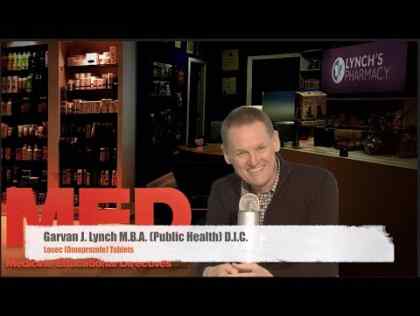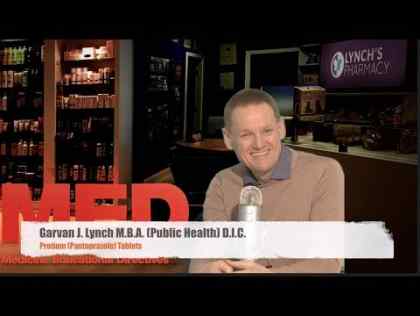
What is it?
A certain amount of Gastro-Oesophageal Reflux of Acid is normal and there is a natural protective mechanism of the lower oesophagus. If reflux is prolonged or excessive it may cause breakdown of this protection with inflammation of the oesophagus.
Risk Factors
Reflux is two to three times more common in men than women.
Population-based studies have shown that between 21 and 40% of people report suffering from Heartburn in any 6 to 12 months' period.
- There is a spectrum of disorders ranging from the most common endoscopy-negative Gastro-Oesophageal Reflux Disease (GORD) to oesophageal mucosal damage, which can progress to ulceration and stricture formation although only about 8% will have moderate or severe oesophagitis.
- Abnormalities of the lower oesophageal sphincter may facilitate excessive reflux of gastric contents including acid and sometimes bile from the stomach into the oesophagus.
- Bile is particularly caustic and reflux of duodenal contents is more troublesome than reflux of gastric contents alone. There is little correlation between severity of symptoms and findings on endoscopy.
- Sometimes drugs that have not been taken with an adequate amount of water stick in the oesophagus and are slowly released causing Oesophagitis. Non-Steroidal Anti-inflammatory Drugs (NSAIDs) and Doxycycline are especially notorious and must be taken with adequate water. Bisphosphonates can be extremely troublesome. Oesophageal Reflux is recognised as a risk factor for Oesophageal Cancer.
Causes
Factors that predispose to reflux include:
- Increased intra-abdominal pressure
- Inadequate cardiac sphincter for anatomical reasons or factors that reduce tone, and also poor oesophageal peristalsis
- Smoking, alcohol, fat, coffee
- Pregnancy
- Obesity
- Tight clothes
- Big meals
- Surgery in achalasia of the cardia
- Systemic sclerosis
- Hiatus Hernia
- Drugs including Tricyclic Antidepressants, Anticholinergics, Nitrates and Calcium Channel Blockers
- Most of these predisposing factors increase intra-abdominal pressure and a fatty meal delays gastric emptying but the listed drugs and smoking relax the tone of the cardiac sphincter.
Presentation
Heartburn is a burning feeling, rising from the stomach or lower chest up towards the neck, that is related to meals, lying down, stooping and straining. It is relieved by Antacids. Retrosternal discomfort, acid brash - regurgitation of acid or bile. Water brash - this is excessive salivation.
Odynophagia (pain on swallowing) may be due to severe Oesophagitis or stricture.
Symptoms
These include chest pain, epigastric pain, and bloating.
Non-cardiac chest pain caused by GORD has been found in up to 50% of patients with chest pain and normal coronary angiography. Usually there is no relationship to exercise and this helps to differentiate most cases of reflux-induced chest pain from true Angina.
Respiratory symptoms include chronic hoarseness (the Cherry-Donner syndrome), chronic cough, and Asthmatic symptoms like wheezing and shortness of breath. Episodic or chronic aspiration can cause Pneumonia, lung abscess, and interstitial pulmonary fibrosis. In 6 to 10% of patients with chronic cough, GORD is the underlying cause.
Diagnosis
- Oesophagitis from swallowed corrosives or drugs like NSAIDS
- Infection (especially in the immunocompromised); cytomegalovirus, herpes, candida
- Peptic Ulcer
- Gastrointestinal (GI) Cancers
- Non-ulcer dyspepsia
- Oesophageal spasm
Complications
- Oesophagitis/Ulcer
- Anaemia
- Oesophageal stricture
- Barrett's oesophagus: This is premalignant ectopic gastric mucosa. Patients with chronic GORD are at increased risk of developing the changes of Barrett's oesophagus. The risk increases with longer duration and increased frequency of gastro-oesophageal symptoms.
How do you treat it?
Treatment for Heartburn and other signs and symptoms of GORD usually begins with over-the-counter medications that control acid. If you don't find relief within a few weeks, your doctor may recommend other treatments, including medications and surgery.
Initial treatments to control heartburn
Over-the-counter treatments that may help control heartburn include:
- Antacids that neutralize stomach acid. Antacids, such as Maalox, may provide quick relief. But antacids alone won't heal an inflamed esophagus damaged by stomach acid. Overuse of some antacids can cause side effects such as Diarrhea or Constipation.
- Medications to reduce acid production. Called H-2-receptor blockers, these medications include cimetidine, famotidine (Pepcid AC), Ranitidine (Zantac 75). H-2 receptor blockers don't act as quickly as antacids, but they provide longer relief. Stronger versions of these medications are available in prescription form.
- Medications that block acid production and heal the esophagus. Proton Pump Inhibitors block acid production and allow time for damaged esophageal tissue to heal. Over-the-counter Proton Pump Inhibitors include Pantoprazole (Protium).
Prescription-strength medications
If heartburn persists despite initial approaches, your doctor may recommend prescription-strength medications, such as:
- Prescription-strength H-2-receptor blockers. These include prescription-strength cimetidine, famotidine (Pepcid) and ranitidine (Zantac).
- Prescription-strength Proton Pump Inhibitors. Prescription-strength proton pump inhibitors include esomeprazole (Nexium), lansoprazole (Zoton), omeprazole (Losec), pantoprazole (Protium).
- Medications to strengthen the lower esophageal sphincter. Called prokinetic agents, these medications help your stomach empty more rapidly and help tighten the valve between the stomach and the esophagus. Side effects, such as Fatigue, depression, anxiety and other neurological problems, limit the usefulness of these medications.
GORD medications are sometimes combined to increase effectiveness.
Surgery and other procedures used if medications don't help
Most GORD can be controlled through medications. In situations where medications aren't helpful or you wish to avoid long-term medication use, your doctor may recommend more invasive procedures, such as:
- Surgery to reinforce the lower esophageal sphincter
- Surgery to create a barrier preventing the backup of stomach acid
- A procedure to form scar tissue in the esophagus
How do you live with it?
Lifestyle changes may help reduce the frequency of Heartburn. Consider trying to:
- Maintain a healthy weight. Excess pounds put pressure on your abdomen, pushing up your stomach and causing acid to back up into your esophagus. If your weight is healthy, work to maintain it. If you are overweight or obese, work to slowly lose weight — no more than 1 or 2 pounds (0.5 to 1 kilogram) a week. Ask your doctor for help devising a weight loss strategy that will work for you.
- Avoid tight-fitting clothing. Clothes that fit tightly around your waist put pressure on your abdomen and the lower esophageal sphincter.
- Avoid foods that trigger heartburn. Everyone has specific triggers. Common triggers such as fatty or fried foods, alcohol, chocolate, mint, garlic, onion and caffeine may make heartburn worse.
- Don't lie down after a meal. Wait at least two to three hours after eating before lying down or going to bed.
- Elevate the head of your bed. An elevation of about six to nine inches puts gravity to work for you. Placing wood or cement blocks under the feet of your bed at the head end.
- Don't smoke. Smoking decreases the lower esophageal sphincter's ability to function properly.
Complimentary medicine
No alternative medicines therapies are proven to treat GORD or to reverse damage to the esophagus. Still, some complementary therapies may provide some relief.
Talk to your Doctor or Pharmacist about what alternative GORD treatments may be safe for you. Options may include:
- Herbal remedies. Herbal remedies sometimes used for GORD symptoms include licorice, slippery elm, chamomile and marshmallow. Herbal remedies can have serious side effects and they may interfere with medications.
- Relaxation therapies. Techniques to calm Stress and Anxiety may reduce signs and symptoms of GORD. Ask your Doctor or Pharmacist about relaxation techniques, such as Progressive Muscle Relaxation or Guided Imagery.
- Acupuncture. Acupuncture involves inserting thin needles into specific points on your body. One small study reported that acupuncture helped people with heartburn that persisted despite medication. Ask your Doctor or Pharmacist whether acupuncture is safe for you.
References:
http://en.wikipedia.org/wiki/Gastroesophageal_reflux_disease
http://www.medicalnewstoday.com/articles/146619.php
http://www.nhs.uk/conditions/Gastroesophageal-reflux-disease/Pages/Introduction.aspx
http://www.patient.co.uk/health/acid-reflux-and-oesophagitis
http://www.mayoclinic.com/health/heartburn-gerd/AN00998



